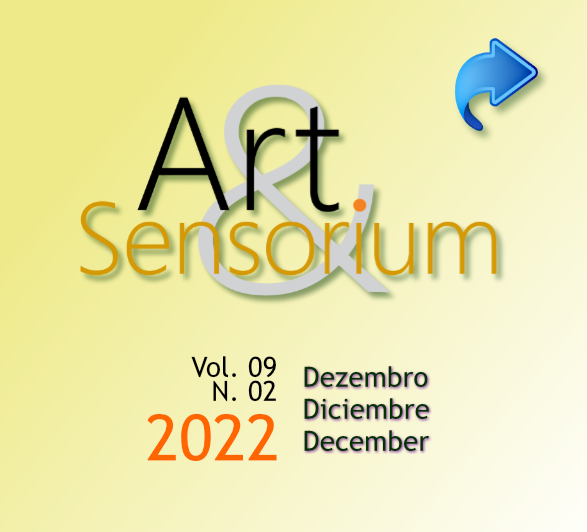Traços da Teatralidade Barroca no poema Lady Lazarus, de Sylvia Plath, na música e noclipe Born to Die, de Lana del Rey
DOI:
https://doi.org/10.33871/23580437.2022.9.2.129-143Abstract
No contexto da Literatura Comparada pretende-se analisar os traços da teatralidade barroca na poesia e na música. Tem-se como corpus o poema Lady Lazarus, de Sylvia Plath – que integra Poemas (2007) –, a canção e o videoclipe Born to die (2012), da cantora-compositora Lana Del Rey. Neste artigo, no contexto da arte barroca, parte-se do pressuposto de que os aspectos estéticos atribuíam elementos teatrais dentro de pinturas, nas quais a dramaticidade barroca transformava morte em espetáculo. Em termos teóricos, utiliza-se, especialmente, o livro Origem do drama barroco alemão (1984), de Walter Benjamin – e respectivo texto de apresentação inerente à tradução desse livro, realizada por Sergio Paulo Rouanet. Tanto a poetisa Sylvia Plath, quanto a compositora Lana Del Rey, retratam o renascimento ou a certeza de um certo tipo de existência após a morte, em suas composições artísticas. Ou seja, a criação poética de ambas, rica em metáforas e alegorias, representa cenas que trazem dramaticidade para a obra, construindo, assim, a teatralidade da morte com a intenção de representar a história-destino.
Downloads
Downloads
Published
Issue
Section
License
Copyright (c) 2022 International Interdisciplinary Journal of Visual Arts - Art&Sensorium

This work is licensed under a Creative Commons Attribution 3.0 Unported License.
Authors who publish with this journal agree to the following terms:- Authors retain copyright and grant the journal right of first publication with the work simultaneously licensed under a Creative Commons Attribution License that allows others to share the work with an acknowledgement of the work's authorship and initial publication in this journal.
- Authors are able to enter into separate, additional contractual arrangements for the non-exclusive distribution of the journal's published version of the work (e.g., post it to an institutional repository or publish it in a book), with an acknowledgement of its initial publication in this journal.
- Authors are permitted and encouraged to post their work online (e.g., in institutional repositories or on their website) prior to and during the submission process, as it can lead to productive exchanges, as well as earlier and greater citation of published work (See The Effect of Open Access).





